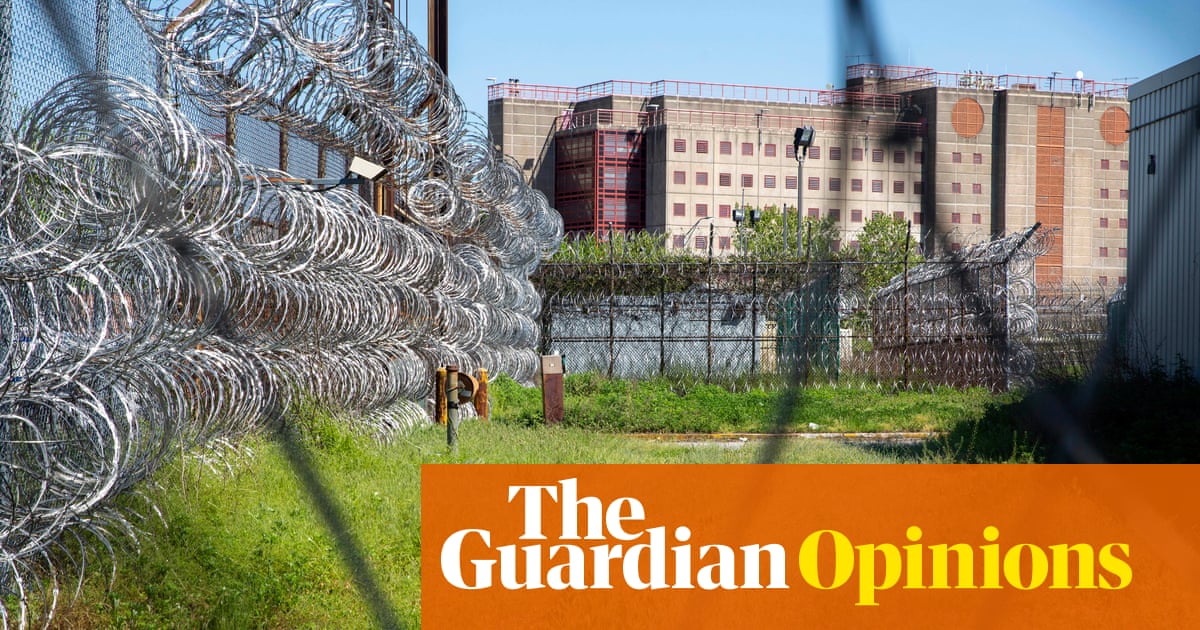Photo credit: www.theguardian.com
Across the nation, there is a concerning resurgence of institutionalization, now reframed as “modern mental health care.” From Governor Kathy Hochul’s efforts to broaden involuntary commitment in New York to Robert F. Kennedy Jr.’s initiative proposing “wellness farms”, policymakers are reviving confinement strategies within a guise of care.
While these proposals differ in appearance, their underlying function remains the same: they extend government authority to monitor, detain, and “treat” marginalized individuals labeled as disruptive or deviant. Rather than providing real assistance, these measures signify a troubling investment in carceral control, particularly impacting disabled, unhoused, racialized, and LGBTQIA+ communities. Historically, the framing of institutionalization as “treatment” often conceals its dark legacy. Consequently, these policies erase community-based solutions and diminish personal autonomy, ultimately reinforcing confinement systems they purport to transcend.
Consider Governor Hochul’s initiative aimed at lowering the criteria for involuntary psychiatric hospitalization. Under her proposed framework, individuals could be detained not due to imminent danger but based on an assessment that they are incapable of meeting their basic needs due to a perceived “mental illness.” This ambiguous criterion potentially opens the floodgates for expansive state control over unhoused people, disabled individuals, and others navigating systemic neglect. Further, Hochul seeks to empower a wider range of professionals, including psychiatric nurse practitioners, to initiate forced treatment, thereby pathologizing a person’s history and using it as justification for future detention.
This initiative is not isolated; it is part of a broader reinstitutionalization trend sweeping the country. In 2022, New York City Mayor Eric Adams directed police and EMTs to forcibly hospitalize individuals labeled as “mentally ill” without evidence of imminent danger. Similarly, California Governor Gavin Newsom’s Care Courts have compelled individuals into court-mandated “treatment”.
Currently, these initiatives are being accelerated at the federal level. RFK Jr.’s Maha initiative presents labor-based “wellness farms” as solutions for homelessness and addiction, a concept that hauntingly mirrors institutional farms of the early 20th century, where individuals with disabilities and people of color were surveilled and exploited under the guise of rehabilitation.
Recently, the U.S. Department of Health and Human Services (HHS) announced significant structural changes that will dismantle critical agencies and consolidate authority under a new “Administration for a Healthy America” (AHA). This restructuring aligns with RFK Jr.’s Maha initiative and Donald Trump’s directive for a “department of government efficiency” by merging the Substance Abuse and Mental Health Services Administration (SAMHSA), the Health Resources and Services Administration (HRSA), among others, into a centralized agency supposedly focused on chronic illness. However, through this shift – and the mass termination of HHS employees – critical mental health and disability services are at risk of being severely undermined.
This restructuring is already in motion, with 20,000 jobs eliminated and regional offices eliminated. The Administration for Community Living (ACL) has disbanded essential programs for older adults and disabled individuals, dispersing them across various agencies with poor oversight. This is not merely an administrative streamline; it represents a systematic dismantling of crucial supports framed as efficiency. SAMHSA, a key player in America’s behavioral health landscape responsible for addiction services and crisis response, is undergoing significant cuts, jeopardizing programs such as the 988 crisis line and access to opioid treatment. This trend illustrates a broader governmental move toward manufacturing confusion as the very institutions serving marginalized populations are dissolved, paving the way for a more expansive, less accountable carceral “care” system.
This emerging system of psychiatric oversight is being promoted as a necessary moral action. Proponents argue there is an ethical responsibility to intervene and assist those who are suffering. However, coercion differs fundamentally from care. Extensive research indicates that involuntary psychiatric interventions often lead to trauma, distrust, and deteriorating health outcomes. Forced hospitalization has been associated with an increased risk of suicide and long-lasting disengagement from mental health care. Notably, coercive measures distract attention from the true sources of distress, such as poverty, housing instability, criminalization, systemic racism, and deficiencies in healthcare.
The assertion that an increase in psychiatric beds is the solution is misleading. Instead, a fundamental shift is required — moving from coercion to collective care. Proven alternatives are available and already in practice: housing-first initiatives, peer-led crisis response teams, harm reduction strategies, and community-based mental health services that prioritize dignity, autonomy, and supportive environments over surveillance and control.
As Liat Ben-Moshe asserts, prisons did not merely take the place of asylums; instead, both systems function together to surveil and manage marginalized communities. Nowadays, reinstitutionalization appears under a new therapeutic guise: “wellness farms,” court diversion programs, and expanded involuntary commitment. While the terminology has evolved, the underlying logic remains constant.
This juncture calls for resistance against the narrative that equates incarceration with care. These initiatives need to be recognized for what they truly are: state-sanctioned containment strategies rooted in ableism, racism, and a reaction to nonconformity.
Genuine public health cannot hinge upon coercion or the marginalization of poverty. Instead, it must focus on fulfilling community needs through accessible, voluntary healthcare, housing, and support systems.
As budget negotiations in New York proceed and involuntary commitment proposals linger on the table, alongside RFK Jr.’s carceral care initiatives at the federal level, we face a pivotal decision: will we perpetuate the legacy of institutional harm, or will we create a system anchored in justice, autonomy, and collective welfare?
The future of mental health care – and human dignity – rests on the choices we make now.
Source
www.theguardian.com

